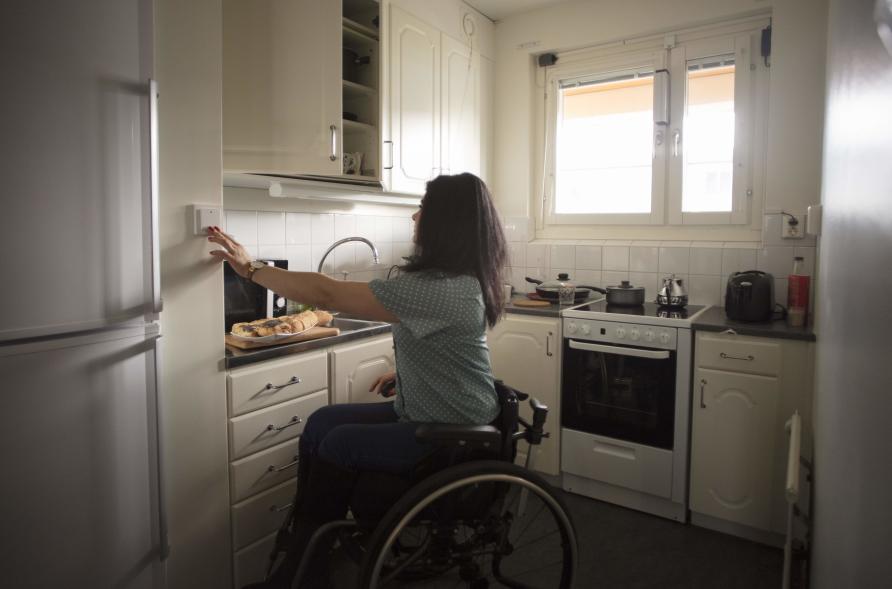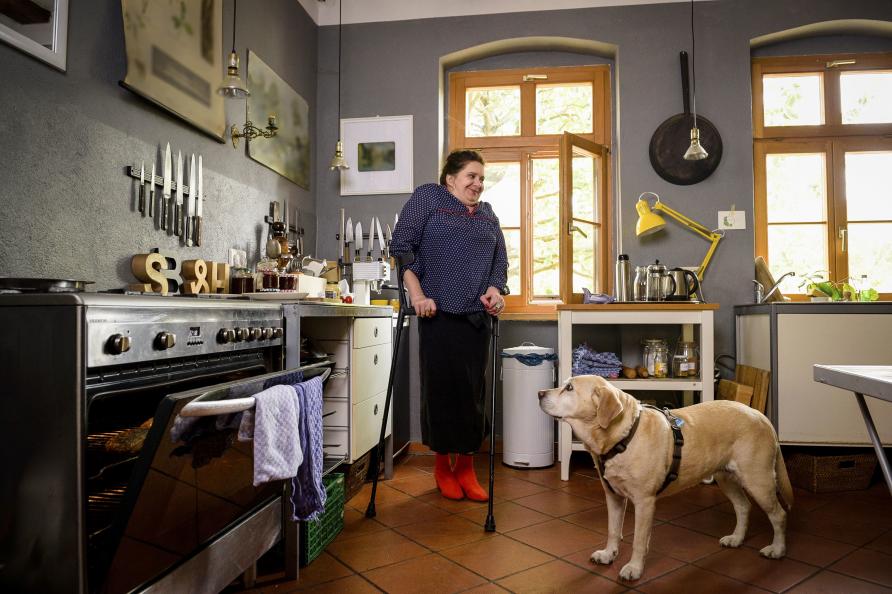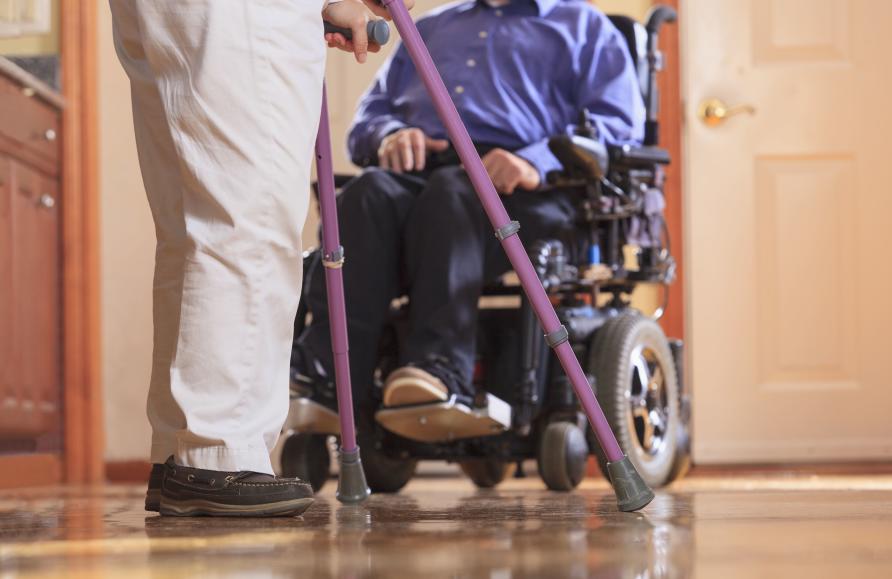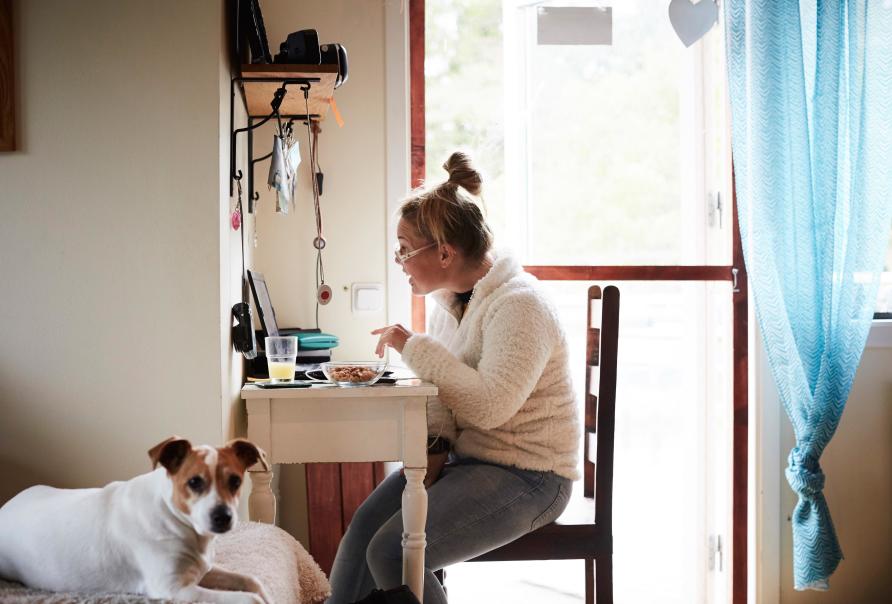Housing is a health issue for Australians with disability

But in Australia, right now, housing disadvantage is impossible to ignore, and the situation is particularly alarming for disabled Australians.
People with disabilities are at much greater risk of living in unaffordable housing where the cost of keeping a roof over their heads can only be met by reducing spending on other essentials like food and health care. As a result they face a higher risk of homelessness, prompting concerns about a disability housing crisis in Australia.
Accessible, affordable housing
Our study at the Centre for Research Excellence in Disability and Health compared the housing circumstances of people with and without disabilities in Australia prior to the implementation of the National Disability Insurance Scheme (NDIS).
In our analysis of survey data, originally published in the Journal of Disability and Society, from the nationally-representative Household, Income and Labour Dynamics in Australia (HILDA) Survey, we found that 11.2 per cent of Australians with disability were living in unaffordable housing compared to 7.6 per cent of people without disability.
This was substantially higher for those with intellectual disability (19.1 per cent) and psychosocial impairments (17.3 per cent).
We also found that people with disabilities experienced poor-quality housing and much higher rates of dissatisfaction with their homes and the neighbourhoods in which they live.
They were much more likely to live in social housing compared to people without disability (7.9 per cent versus 1.5 per cent), and this was particularly high for people with intellectual disability of whom 18.4 per cent lived in social housing.
People with disabilities, who are more likely than people without disabilities to live on low incomes, may have limited housing options making them especially vulnerable to poor housing circumstances.

People with disabilities may have limited housing options.
This month, Anglicare released its tenth annual Rental Affordability Snapshot, that reported “finding an affordable home in the private rental market is a complete fiction for people on low incomes”.
The report identified 317 homes out of 69,485 advertised properties in the last month that were affordable for recipients of the Disability Support Pension.
In Melbourne there were only six out of 14,026 rentals.
Housing requirements like location, access and/or modifications are also considerations for people with disabilities. This is particularly significant for people with physical disabilities.
And we have seen how accessible housing and location was used to derail the opposition when Minister Peter Dutton accused Labor opponent Ali France of using her disability as an “excuse” for not living in the electorate in the marginal seat of Dickson.
Young people with disabilities continue to live in nursing homes because of the lack of appropriate housing. Many live with family members because of ongoing reliance on parents as informal carers, and many people with disabilities live in institutions or group homes.
With one in five Australians living with a disability, this is a critical issue that needs to be understood to guide policy.

Housing requirements like location, access and/or modifications are also considerations for people with disabilities.
However, we identified a lack of evidence describing the housing circumstances of people with disabilities across a comprehensive range of housing characteristics, and how this compared to people without disability.
Will the NDIS help?
The National Disability Insurance Scheme (NDIS) will provide about 460,000 Australians aged younger than 65 years with a severe permanent disability with individual support packages to purchase services and supports.
By providing services and supports with funding attached to individuals instead of disability service providers, the NDIS aims to enable people with disabilities to have more “choice and control’” over their lives, including the type of house they live in, where they live and with whom.
However, policy implementation and service development have not focused on housing despite a recognised shortage of secure, affordable and accessible housing for people with disabilities.
It’s anticipated that the NDIS will generate further unmet demand for affordable and accessible housing because many people with disabilities will be able to live independently.
The National Disability Insurance Agency plans to stimulate new housing supply for about 28,000 people with disabilities who are eligible for Specialist Disability Accommodation. These are those people who require an integration of housing and personal supports because they have significant functional impairments and/or complex needs.

The NDIS aims to enable people with disabilities to have more “choice and control’” over their lives.
The remaining NDIS recipients will need to find suitable accommodation in the mainstream housing market because the NDIS is designed to complement existing mainstream services such as housing, education and health, and so it doesn’t fund the cost of housing.
While a large proportion of participants are expected to secure private housing without assistance, it’s estimated that between 35,000 and 55,000 NDIS-eligible participants will have an unmet need for affordable housing.
Promoting independent living
Without the availability of affordable housing that is accessible, suitable and in the appropriate location and neighbourhood, people with disabilities will be unlikely to achieve ‘choice and control’ over their housing, and the NDIS may not reach its goal of promoting independent living.
Furthermore, the large proportion of the disabled population who won’t be eligible to receive individualised packages through the NDIS – approximately four million people – will also have an unmet need for affordable and accessible housing.
Given the anticipated changes to demand for appropriate housing for people with disability given the implementation of the NDIS, our findings provide an important baseline from which to compare the impact of the NDIS on the housing circumstances of people with disabilities.
Disability policy and service reforms are unlikely to redress this housing disadvantage for people with disabilities in Australia and, in fact, may even increase current housing inequalities.
New strategies are needed to generate affordable and accessible public and private housing for Australians with disabilities.

A large proportion of people living with a disability will have an unmet need for affordable and accessible housing.
Governments, non-government organisations, charitable organisations and the private sector must work with people with disabilities to develop long-term housing solutions that promote independence and that are secure, accessible and affordable.
Without the political will and investment that addresses housing disadvantage among people with disabilities in Australia, the aspirations of the NDIS to enable people with disabilities to live independently and fully participate in society won’t be realised.
This article was written by Zoe Aitken and Mellissa Kavenagh of the University of Melbourne and was published by Pursuit. A version of this article also appears on Election Watch.
Zoe Aitken is a Research Fellow in the Disability and Health Unit at the Melbourne School of Population and Global Health in Melbourne University. Her research interests encompass disability, disadvantage and housing issues.












